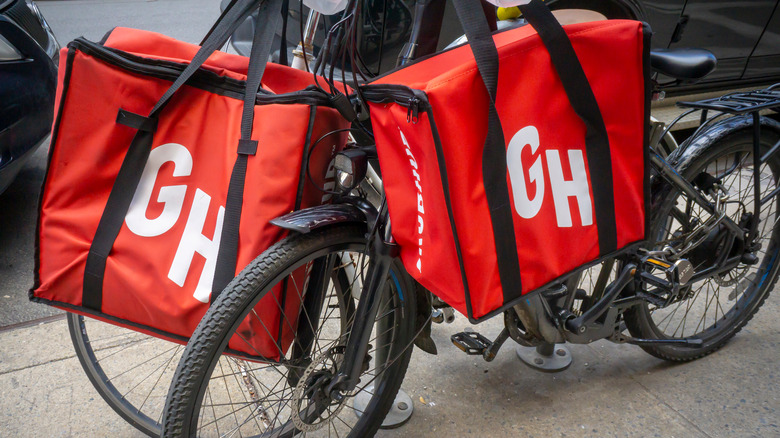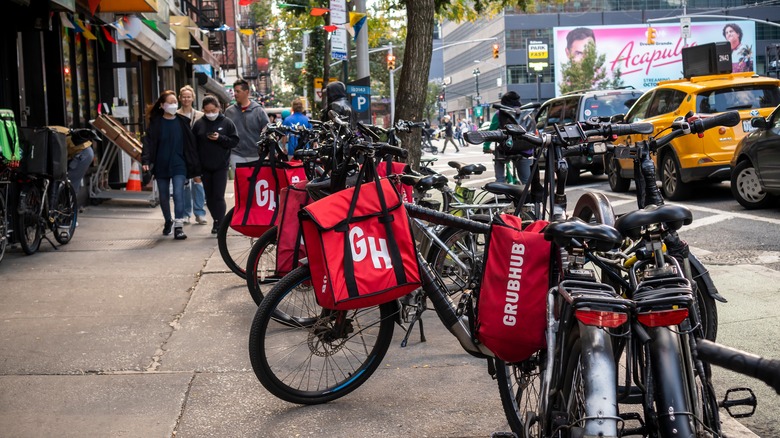Washington, DC Is Suing Grubhub. Here's Why
Diners have had gripes with Grubhub for several years. According to Forbes, some found fault with the food delivery service over the fact that it wrongfully charged restaurants for call-in orders that never actually occurred. These fines quickly added up, and one New York restaurant ended up with a $10,000 bill over these phony charges. The company refused to apologize and instead blamed the press and anyone else who whistle blew. As a result, journalists and government officials decided to investigate the company and its business practices.
Others have found fault with Grubhub for completely separate reasons. Le Chic Geek found that the company added restaurants to its service without the restaurant's consent and these listings feature considerably marked-up prices. Grubhub has also notably replaced restaurants' hotlines with their own, and even listed some restaurants as permanently closed during the height of the pandemic when they did not join the app. These issues have reached a real boiling point, and now, Washington, DC is suing the food delivery service over its irreparable practices.
Grubhub sued over its business style
NPR reports that DC plans to sue Grubhub over the fact that the company claims that it hosts over 1,000 restaurants on its app, while in reality, many businesses on the platform have never agreed to any form of partnership and these restaurants never consented to feature their likeness in association with the business. The case also claims that the listed prices appear higher than those found at the restaurants. The plaintiffs also argue that the restaurant hides a varieties of fees that get lumped into the tax sections as well.
The accusers claim that these malicious practices mislead consumers and at worst, prove deceptive and coercive. But according to Restaurant Dive, Grubhub denied these allegations, and said they did not break any of DC's laws. The company claims that they never broke agreed upon contracts made with restaurants, and additionally no longer provide branded imaging for affiliated restaurants.
This lawsuit follows a long string of cases against similar delivery services. Chicago recently sued DoorDash and Grubhub over similar business practices, and San Francisco claimed several delivery apps broke Californian laws through similar means. Only time can tell what happens to Grubhub, but its future looks shaky in DC.

